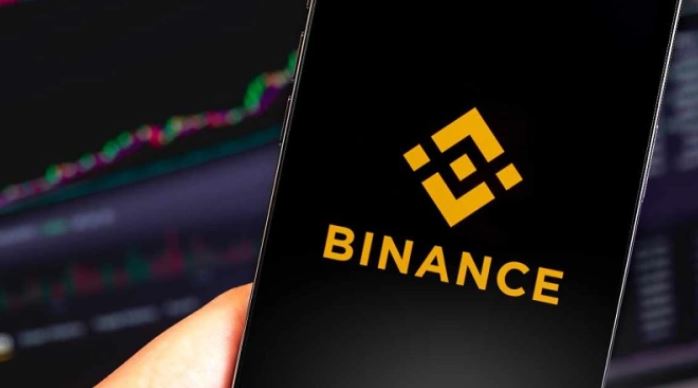In a new directive, the Central Bank of Nigeria (CBN) has instructed Deposit Money Banks (DMB) and other financial institutions to close accounts used in trading cryptocurrency.
This was contained in a press statement signed by Bello Hassan, Director of Banking Supervision, and Musa Jimoh, Director of Payments System Management Department.
It’s expected to take effect immediately.
According to the apex bank, the new directive follows an initial caution to enlighten the general public about the risk associated with cryptocurrency.
However, in the latest development, CBN is completely cutting off the chances of participating in any form of cryptocurrency trading.
#CBN prohibits regulated institutions from dealing in cryptocurrencies or facilitating payments for cryptocurrency exchanges…https://t.co/OQ6MvQB8O1
— Central Bank of Nigeria (@cenbank) February 5, 2021
“Further to earlier regulatory directives on the subject, the Bank hereby wishes to remind regulated institutions that dealing in cryptocurrencies or facilitating payment for cryptocurrency exchanges is prohibited.”
“Accordingly, all DMBs, NBFIs, and OFIs are directed to identify persons and/or entities transacting in or operating cryptocurrency exchanges within their systems and ensure that such accounts are closed immediately,” the press release read in part.
ALSO READ: Bitcoin And Sports: Top Betting Sites That Accept Cryptocurrency
Although the latest move by the CBN isn’t unexpected, it is coming at a time when cryptocurrency adoption in the country is at its peak.
Implications of the new directive on the booming cryptocurrency market in Nigeria
Cryptocurrency is rapidly taking on the global financial market like a plague, and governments of various countries are sampling different regulatory approaches.
In Nigeria, for instance, the adoption rate of cryptocurrency has become quite alarming, with more than half a billion dollars traded so far.
This claim is also evident in a recent report shared by Paxful, a global leading peer-to-peer bitcoin marketplace.
The P2P cryptocurrency trading platform reported that Nigeria is currently the second-largest bitcoin market in the world, next to the United States of America.
Furthermore, the report disclosed that Nigeria had traded over 60, 215 bitcoins (BTC), valued at $566 million in the last five years.

Source: CFO
Similarly, Arcade Research ranked Nigeria fifth globally, with about 11% of its internet subscribers owning or using cryptocurrency.
While the figure clearly indicates that cryptocurrency trading is actively taking place in Nigeria, an unregulated environment contributes greatly to these quotas.
Until now, there hasn’t been any major regulation from the Nigerian government that restricts or perhaps oversees cryptocurrency trading in the country.
However, this vulnerability has fueled the interest of many Nigerians, especially youths in the cryptocurrency trading business.
As of now, there are tons of Non-Bank Financial Institutions (NBFIs) that specifically offer cryptocurrency trading as their core business module.
ALSO READ: How Elon Musk Is Influencing Stock Price Shifts With Tweets
It is even interesting to find out that two of Nigeria’s leading gateway payment platforms – Flutterwave and Paystack are now integrated on certain platforms like Luno, another prominent P2P cryptocurrency trading platform.
Not just that, there has been an increase in the number of services that accept cryptocurrency as a payment option.
Just recently, Piggyvest, an online saving and investment app, added a cryptocurrency API to its platform, allowing its users to invest in bitcoin.
Guess what? That’s just one of many platforms that have adopted cryptocurrency as either a transaction option or a core trading business module.
Now, CBN’s ban will drive cryptocurrency underground.
This is sure to trigger another black market that the apex bank might not be able to control.
Putting an end to all of this step forward would equal a major setback in the Nigerian fintech sector.
What does the new CBN directive mean for foreign investment?
While we are still figuring out the CBN’s intent on its latest move to halt cryptocurrency trading in Nigeria, it appears to be a terrible action to take for many reasons.
One of these reasons includes the negative impact on foreign investment.
Except for unknown reasons, no foreign investors will be impressed by the new directive.
For one, it is obvious that the government has made its choice based on unfounded justifications i.e, identifying risk as a significant excuse where the stock market and forex trading still thrive.
It is even far-fetching considering that Nigeria’s Securities and Exchange Commission (SEC) had previously set up a committee to create a framework for the regulation of digital assets and local crypto exchange in Nigeria.
However, the government seems to have quickly lost interest towards that end.
ALSO READ: Digital Yuan: China To Become First Country To Issue A Central Bank Digital Currency
Undoubtedly, this kind of reckless decision by CBN rubs badly on Nigeria’s economy as a whole, making it even difficult for foreign investors to invest in the country.
One of the advantages is that of cross-border payment especially at a time when the Naira is failing.
In comparison, the US Treasury’s Office of the Comptroller of the Currency (OCC) approved Anchorage as the first Crypto Bank in the country, marking another breakthrough for the crypto world.
One would have even thought that Nigeria, which currently ranks 2nd in terms of crypto market volume, will also devise a way of generating revenue from the growing market or perhaps come up with strategic regulations.
On the contrary, the nation’s apex bank decided to end the rapidly booming market.
Nigerians react to the new directive
Like every other time, the new directive has been heavily criticized by many Nigerians.
Some have taken to their social media pages to express their grievances.
Below are some comments from Twitter feeds:
In 2012, I realised the relationship between government & business. My business had been adversely affected by government policy. It dawned on me then that even when you mind your business and just focus on growing, government can destroy all you worked for with a policy#Bitcoin pic.twitter.com/ViMw2Tybtb
— Aisha Yesufu (@AishaYesufu) February 5, 2021
Until this circular, I never taught of living in another country. The CBN opened a new place in my brain today. Thank you to everyone behind this draconian idea. Enjoy Nigeria alone 👏🏾👏🏾👏🏾 pic.twitter.com/KGXJGEa1rm
— JJ. Omojuwa (@Omojuwa) February 5, 2021
It's now I just believe that our govt is the reason behind the high rate of poverty in Nigeria #Bitcoin pic.twitter.com/ouSHDaSh4q
— 𝙏o𝙗amichaels🤪 (@tobamichaels) February 5, 2021
The man in Aso rock & his govt don’t mean well for us. They hate us with passion! They just don’t want us to survive
The beauty of #bitcoin Is that is a decentralized system. no one can control it, CBN is irrelevant in this issue! With Binance you can still buy & sell crypto
— MOHNICE ⚔️ (@Mohnice_) February 5, 2021
Forward never, backward ever!!
Oh my country!! 😞 #Bitcoin pic.twitter.com/kJupbVRG2U— blvckSHUGAR💯 (@pdshugar) February 5, 2021
Meanwhile, there have been a couple of conspiracy theories making rounds already.
Controversial journalist, Dr. Kemi Olunloye, linked the ban on crypto trading via local banks to Jack Dorsey’s visit to Nigeria for “Bitcoin meet ups”.
REAL REASON Buhari’s CBN blocked Cryptocurrency: When @jack Dorsey visited Nigeria in November 2019, he had some #Bitcoin meet ups. He solicited money for the #EndSARS street protest organizers. There was a wallet account advertised. Adamu Garba, #emefiele all pushed the BAN. pic.twitter.com/Is2Pm732GT
— Dr Olukemi Olunloyo (@Kemiolunloyo) February 5, 2021
On the other hand, some Nigerians feel the government could have done better.
This is because governments of other countries are creating new opportunities tailored around the use of cryptocurrency.
The government of Ukraine has considered building a #bitcoin mining centre to use the country’s excess nuclear power.
Meanwhile in Nigeria, the CBN just prohibited banks from facilitating crypto exchanges and have ordered that accounts involved in crypto exchanges be closed.
— Yimzy (@oyimzy) February 5, 2021
What do you think about the new directive by the CBN? Kindly share your thoughts in the comment section below.



















 and then
and then